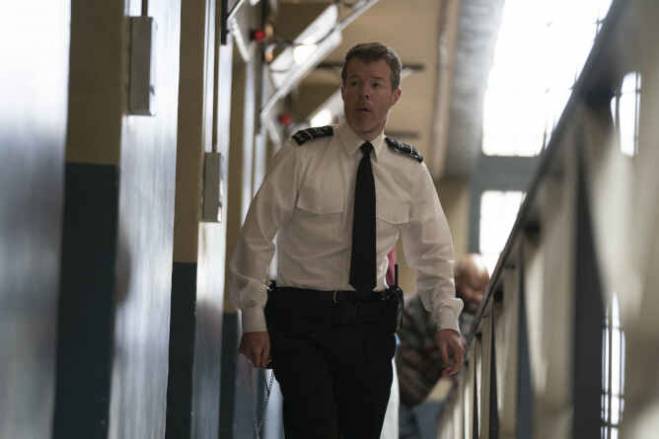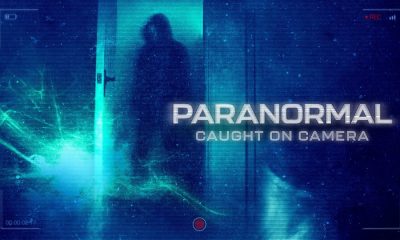Interviews
Screw | Interview with Stephen Wight (Gary Campbell)

Stephen Wight (Gary)
How would you describe the tone of Screw?
It’s something that we constantly discussed, even while shooting. Primarily it’s very much a drama, but Rob’s scripts have that sense of realism. With a lot of services like that, whether it be the police force or the army, there is an element of humour which is vital for the survival of the characters in the show and prison officers in real life. It’s about finding the truth of the situation, and humour comes outof that. These are not necessarily pleasant places to work, but there is light and shade. We’re not fixed on the conception that prison life is incredibly bleak, cold and dark.
How would you describe Gary?
On the surface he can seem a very simple man, but I found him incredibly complex. He is a no-nonsense, working-class, angry, white man, but underneath all of that, there is a good heart. He’s fiercely loyal to his colleagues and sees them as an extended family, but he keeps his life inside and outside prison very separate.
What made him the way he is?
Gary hasn’t achieved everything in his life he wanted. He wanted to join the police force, and it’s a source of frustration for him that he didn’t make it. Someone like him is straight-talking in the sense that he is not politically correct in a lot of his views or in the way he expresses himself. But like with Trump supporters, you have to engage with people like him to understand them, because someone like Gary can feel easily marginalised in a world where people do a lot of talking but not a lot of listening.
Is he good at his job?
Yeah, absolutely. Working with the prison officers that we met during rehearsals, we realised this is all about trust. Gary is fiercely loyal to his colleagues and wouldn’t do anything to put them in jeopardy – he’ll always have your back, whether or not he agrees with you. While he may have less sympathy for certain prisoners, he understands he has a job to do.
Tell us about the set.
It was incredible. There was this sense of theatre about it, that we would actually be operating, 99% of the time, on this purpose-built set. When you’re working on an amazing set, that becomes a character in and of itself. The detail envelops you, so it was an incredible playground for us.
What insights did the real-life prison officers offer?
The human detail of being bored during a day where nothing’s going on, followed by a day with some incident that you just couldn’t even imagine. They were also really good on building relationships: trust within your team and the difficulty of gaining the trust of prisoners, while also being distant from them. You shouldn’t tell prisoners anything about yourself because the more information you give them, the more leverage they have. Also, the practicalities: how do you put on a hold? How do you de-escalate a situation? What happens when a fight kicks off? What do you do with the keys? How do you close the doors? It adds an element of immersion for the audience.
How has making Screw changed your perceptions of prison?
The more you learn about the nuances and challenges of day-to-day life, not just for the officers but for the prisoners they are serving, you realise the level of complexity is almost impossible. They do an amazing job. For me it became about reform of the system, What punishment is fitting for the crime, and how do we help those people? When you’re not involved in that world, it’s “lock ’em up and throw away the key” – you don’t really need to think about it, so it’s easy to dehumanise it all. But how do we make it a better, more purposeful, more functional system? We ask a lot of the people who look after the prisoners and, while we’re not going to solve all the issues or suggest we have all the answers, I hope we’ll open up a dialogue because it’s an important subject.
-

 News1 day ago
News1 day agoJeopardy! Friday May 3, 2024, Recap, Winner and Final Answer
-

 News24 hours ago
News24 hours agoThe Henry Ford’s Innovation Nation, May 4, 2024, CBS, “Solar Campers”
-

 News2 days ago
News2 days agoThe Young and the Restless, Friday May 3, 2024, CBS
-

 News2 days ago
News2 days agoLive with Kelly and Mark, May 3, 2024, ABC, “Winston Duke, Kim Fields”









































